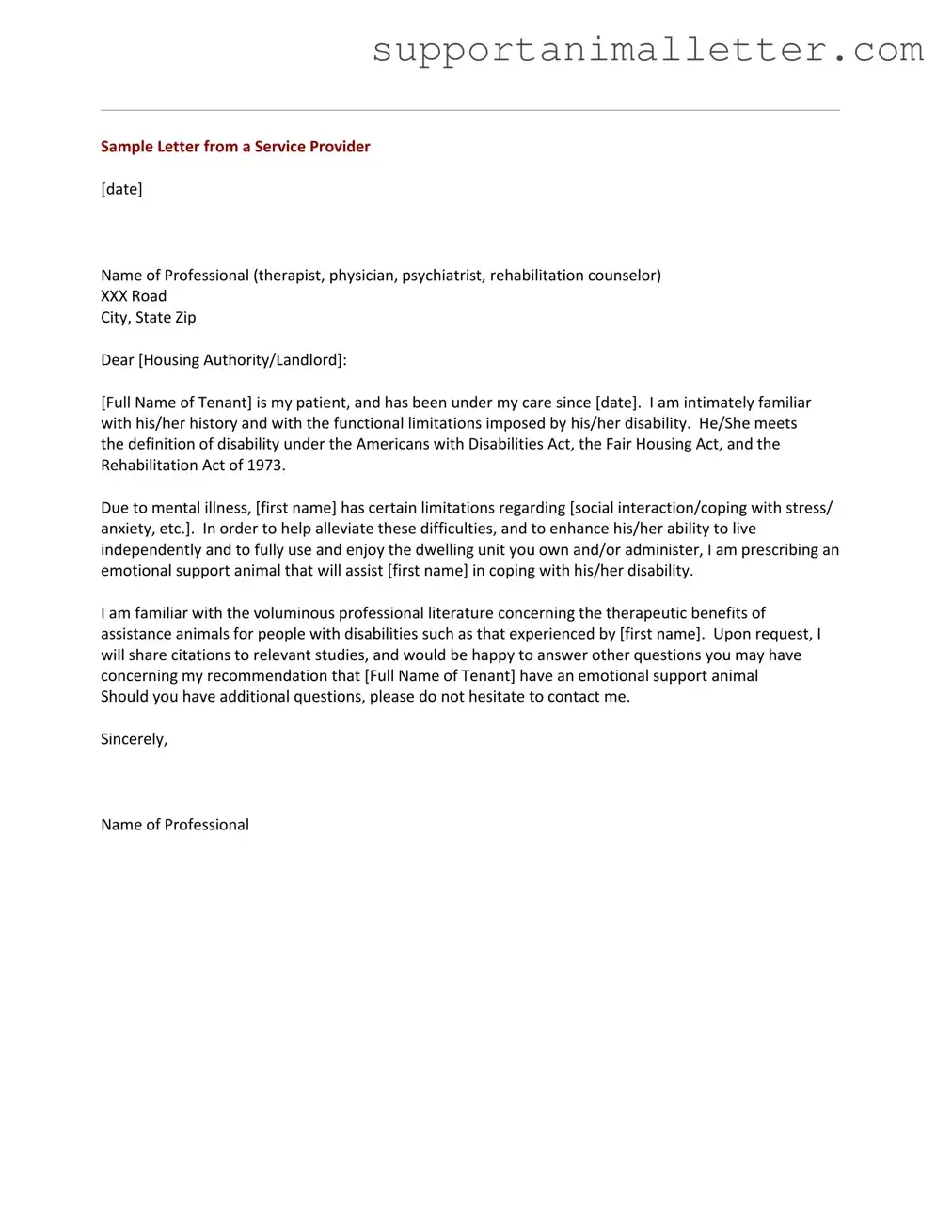Similar forms
-
Service Animal Certification Letter: This document serves as proof that an individual has a service animal trained to perform specific tasks for a person with a disability. Like the Emotional Support Animal Letter, it is often required to access certain public spaces where animals are typically not allowed.
-
Therapy Animal Letter: Similar to an Emotional Support Animal Letter, this document indicates that an animal provides comfort and support to individuals in therapeutic settings. Both letters highlight the mental health benefits associated with the presence of the animal.
-
Pet Deposit Waiver Letter: This letter can be used to request a waiver for pet deposits when renting. It is similar in that it may be necessary for housing situations, especially when emotional support animals are involved, and it helps clarify the need for the animal.
-
Disability Verification Letter: This document is often issued by a healthcare provider to confirm that an individual has a disability. It is akin to the Emotional Support Animal Letter because both documents are used to demonstrate the need for assistance due to a mental health condition.
-
Housing Provider Accommodation Request: This request is submitted to a landlord or housing provider to seek reasonable accommodation for an emotional support animal. Like the Emotional Support Animal Letter, it aims to ensure that individuals can live with their support animals without facing discrimination.

